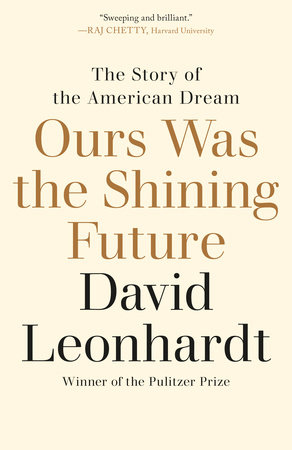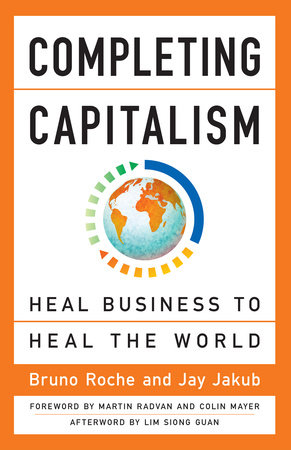

Completing Capitalism
By Bruno Roche and Jay Jakub
Foreword by Colin Mayer and Martin Radvan
By Bruno Roche and Jay Jakub
Foreword by Colin Mayer and Martin Radvan
Category: Economics

-
$21.95
May 01, 2017 | ISBN 9781626569270
Buy the Paperback:
YOU MAY ALSO LIKE
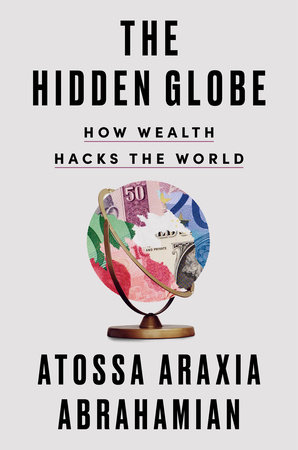
The Hidden Globe
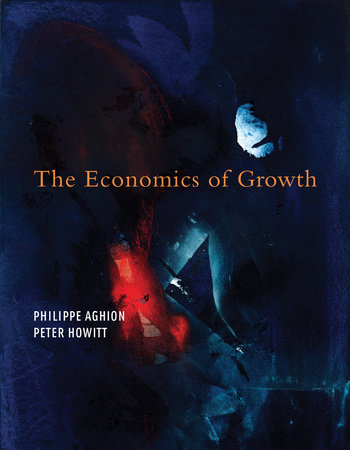
The Economics of Growth
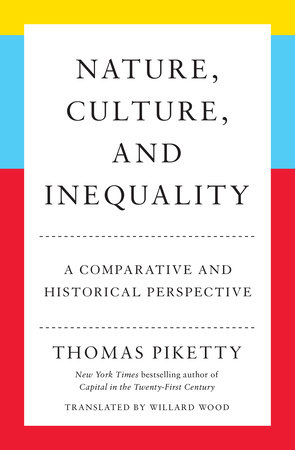
Nature, Culture, and Inequality
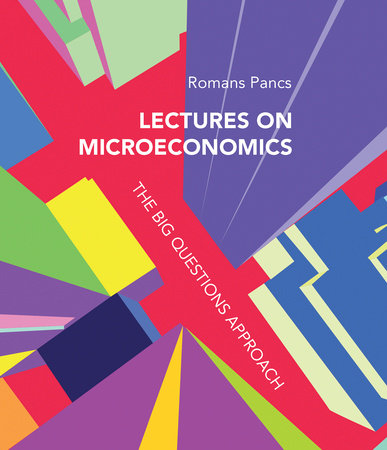
Lectures on Microeconomics
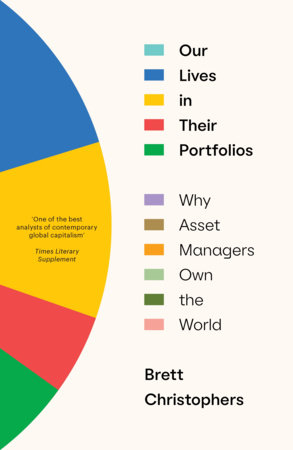
Our Lives in Their Portfolios
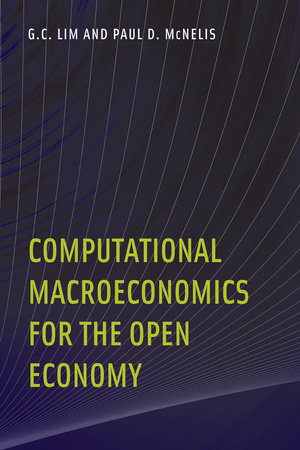
Computational Macroeconomics for the Open Economy
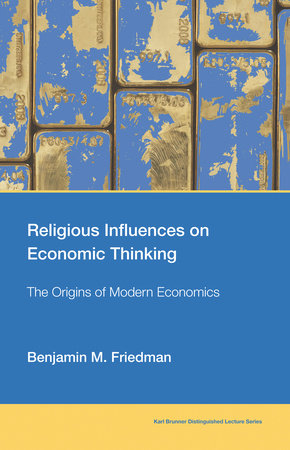
Religious Influences on Economic Thinking
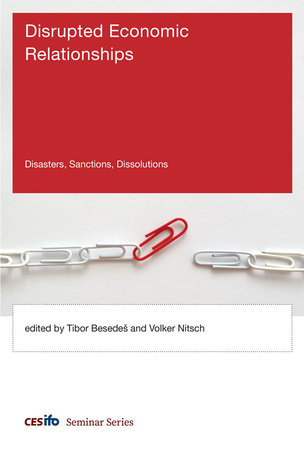
Disrupted Economic Relationships
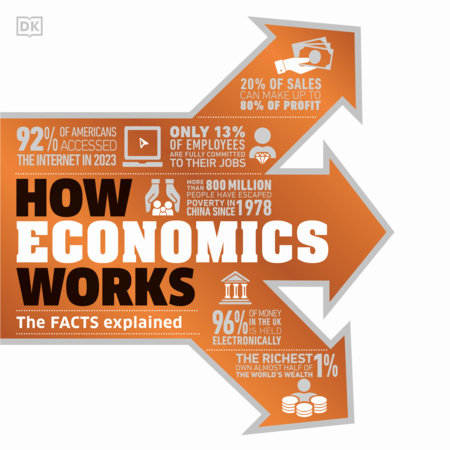
How Economics Works
Praise
“A major breakthrough on creating an economy that works for all. The thinking is rigorous and backed up by careful research on how mutuality-based practices in social, human, natural, and financial capital can change the economic well-being of society. This work now sets the gold standard for how the private sector can go beyond lip service in making a major positive impact on the world.”
—Peter Block, author of Flawless Consulting and Community
“The world is rapidly changing, and business must adapt to the new rules of the game or fall behind. Roche and Jakub give us a blueprint for sustainable corporate prosperity. It’s an approach that can deliver greater value to society and the environment and also deliver superior business returns—a ‘win-win-win’ for all stakeholders in a corporate value chain. But to do this, you must work with the right people. This new way of operating a business is applicable to all sectors of the economy. It is not just about doing good but is good for business.”
—Olivier Goudet, CEO, JAB Group, and Chairman, Anheuser-Busch InBev
“Courageously reconciles dimensions that were thought to be mutually exclusive for centuries. A must-read for today’s business leaders who are ready to reinvent their world!”
—Jean-Christophe Flatin, President, Mars Global Chocolate
“In Completing Capitalism, Bruno Roche and Jay Jakub dramatically succeed where others have dismally failed. Their clear, concise, values-driven words shape capitalism into its final form and elevate it to the pinnacle position that it deserves. Roche’s and Jakub’s superb scholarship is underpinned and supported by the practical reality of successful pilots and business world applications. They not only complete capitalism, they create and hand us a road map for responsible business in the 21st century.”
—Dr. Frank Akers, former Associate Director, Oak Ridge National Laboratory; Chairman, Mars Science Advisory Council; CEO, Oak Ridge Strategies Group; and Brigadier General, US Army (ret.)
“For Veolia, the world leader in environmental services, the question of innovation in service of human progress is central: expanding access to natural resources, preserving and renewing them is our vocation. Our values at Veolia are in profound harmony with the great essay of Bruno Roche and Jay Jakub, Completing Capitalism, which proposes a vision and practical solutions for a responsible capitalism based on reciprocity and shared prosperity.”
—Dinah Louda, Executive Director, Veolia Institute, and advisor to the CEO of Veolia
“The more complete form of capitalism put forward by Roche and Jakub is not about competitive advantage. But to be competitive in the future, companies will need to operate this way.”
—Paul Michaels, former CEO, Mars, Incorporated, and former executive, Johnson & Johnson and Procter & Gamble
“As human beings we long for the way the world is supposed to be, even as we make choices against that hope. For years Bruno Roche and Jay Jakub have been hard at work thinking and rethinking the way that business should be and ought to be—if we are to flourish as selves and societies, choosing a future that understands the grain of the universe. With a rare willingness to ask the most critical questions about the nature of business, their ‘economics of mutuality’ is a vision for doing good and doing well in the context of one of the most iconic brands in the modern world. Neither charity nor corporate social responsibility, but rather a way for sustained profitability, Completing Capitalism argues for making money in a way that remembers the meaning of the marketplace.”
—Dr. Steven Garber, Principal, The Washington Institute, and author of Visions of Vocation and The Fabric of Faithfulness
“Some endeavors require intellectual, emotional, or spiritual courage. Bruno and Jay have demonstrated all three in fleshing out this valuable piece of work on behalf of Mars, Incorporated, our associates, and all stakeholders, including the planet. I truly hope it evolves, as I believe it can and must, the dialogue regarding capitalism’s future and its crucial role in our world going forward.”
—Stephen Badger, Chairman of the Board, Mars, Incorporated
“This crisis is more than a ‘normal’ crisis. It requires a reset of our thoughts and ways of doing. Business as usual does not work anymore or anywhere. The journey that Jay Jakub and Bruno Roche are proposing is a difficult one but a promising and fecund one. It is ambitious but within our reach to make this world a better one. This is, I believe, the only reasonable option. We have patched up the system. This is the good news. We have to rebuild. This is the promising appeal. A properly functioning market economy must work for the many, not just for the few. Now is the time if we want to eradicate poverty in our generation. And here is how.”
—Bertrand Badré, CEO, BlueOrange Capital; Chair, Global Future Council on International Governance and Public-Private Cooperation, World Economic Forum; former Managing Director and Chief Financial Officer, World Bank Group; and former Group Chief Financial Officer, Société Générale and Crédit Agricole
Table Of Contents
oreword (by Colin Mayer, former Dean, Oxford University’s Said School of Business and Martin Radvan, Executive Vice President, Mars, Incorporated and President, Mars Wrigley Global Confectionery
Introduction: Uprooting the Dysfunctions of Financial Capitalism
Chapter 1: The Expanded Meaning of Capital
Chapter 2: Five Indicators for Measuring Human Capital and Well-being at Work
Chapter 3: Measuring Social Capital – How Communities Affect Growth
Chapter 4: Measuring Natural Capital – Making More from Less
Chapter 5: Recalibrating Financial Capital – How Mutuality Drives Profits
Chapter 6: Maua – Social and Human Capital, A Case Study
Chapter 7: Coffee – Natural Capital, A Case Study
Chapter 8: Remunerating New Forms of Capital
Conclusion: Repositioning Business as a Restorative Healing Power
Afterword (Lim Siong Guan, Chairman GIC – Singapore Sovereign Wealth Fund)
Notes
Acknowledgments
Index
About the Authors
21 Books You’ve Been Meaning to Read
Just for joining you’ll get personalized recommendations on your dashboard daily and features only for members.
Find Out More Join Now Sign In






